New faculty: 2024
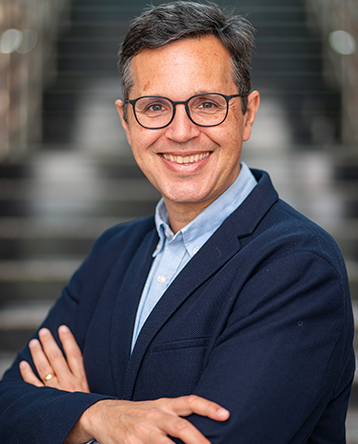
João Barros
Associate Director and Research Professor, CMU-Africa
Courtesy Appointment, Electrical and Computer Engineering
João Barros is an electrical and computer engineer, university professor, academic leader and passionate entrepreneur, who loves to turn complex theorems and algorithms into technologies, products and services that can make a real difference in people’s lives. For the past 25 years, he has worked mostly on wireless networks and intelligent transportation systems with special emphasis on sensor networks, physical-layer security, network coding, vehicular networks and edge AI. Barros received his undergraduate education in electrical and computer engineering from the Universidade do Porto, Portugal and Universitaet Karlsruhe. He completed his Ph.D. in electrical engineering and information technology at Technische Universitaet Muenchen (TUM), Germany. At the Universidade do Porto, Portugal, he served as full professor and founding director of the Instituto de Telecomunicações - Porto and taught MBA-level courses at Porto Business School.
Barros has held visiting appointments at MIT, Cornell and Stanford University. Between 2009 and 2012, Barros served as the national director of the CMU-Portugal program, a $77M research initiative of the Portuguese Government in partnership with Carnegie Mellon University. On the entrepreneurship side, Barros co-founded two venture-backed startups, Streambolico and Veniam, where he led the company as CEO for 10 years until the successful acquisition by Nexar Inc in August 2022. His last corporate position was Chief Platform Officer of Nexar.
Barros is an IEEE Fellow and a twice Fulbright alumnus. His work has led to more than 180 science and technology papers, 22 international patents, a book published by Cambridge University Press, and feature articles by NPR, BBC, MIT Technology Review, the Atlantic, CNBC and TechCrunch, among others. His publications have received more than 12,000 citations, as well as numerous awards, including the 2010 IEEE Communications Society Young Researcher Award for the Europe, Middle East and Africa region, the 2011 IEEE ComSoC and Information Theory Society Joint Paper Award, CableLabs, Wireless broadband alliance, TU Automotive. He also received a state-wide best teaching award by the Bavarian State Ministry of Sciences, Research and the Arts.
Barros holds a performing arts degree from the Music Conservatory of Porto, Portugal where he plays regularly with various music ensembles, including his wife and three sons.
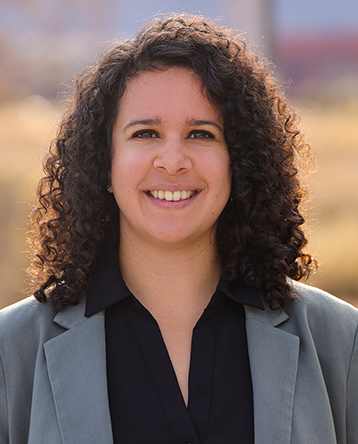
Ophelia Bolmin
Assistant Professor, Mechanical Engineering
Ophelia Bolmin’s research interests are at the interface between structural dynamics, biomechanics, physiology, multi-scale modeling, design, and manufacturing. At CMU, she leads the Mechanisms Inspired by Nature for Dynamics (MIND) lab. Her group focuses on designing, manufacturing, and testing bio-inspired mechanical systems for dynamic tailoring. Ophelia’s approach combines biology-oriented considerations with engineering-oriented problem-solving and application-driven methods to advance the discovery of new science and accelerate the development of new technologies for applications ranging from aerospace to micro-robotics and prosthetics.
Prior to joining Carnegie Mellon University, Bolmin was a postdoctoral researcher at the Center for Integrated Nanotechnologies at Sandia National Laboratories. She received her B.S. in mechanical engineering from ENSTA Bretagne (France), and her M.S. in aerospace engineering and Ph.D. in mechanical engineering from the University of Illinois at Urbana-Champaign (UIUC).
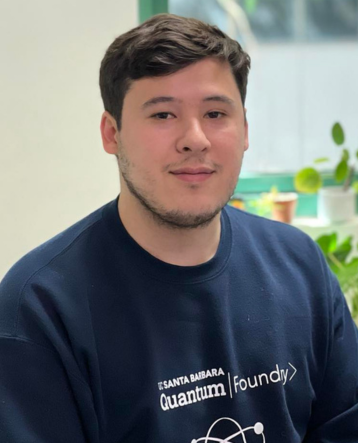
Juan Chamorro
Assistant Professor, Materials Science and Engineering
Courtesy Appointment, Physics
Chamorro holds a Ph.D. in chemistry from Johns Hopkins University in 2021, where he researched the chemistry of quantum materials, and was an NSF MPS-Ascend Postdoctoral Fellow at the University of California, Santa Barbara from 2021–2024. His research at Carnegie Mellon will focus on quantum materials synthesis, crystal growth, and structural and physical properties characterization through in-house measurements and X-ray and neutron scattering experiments at national and international facilities. This research is highly interdisciplinary and draws from knowledge and expertise in materials science, inorganic and solid state chemistry, and condensed matter physics.
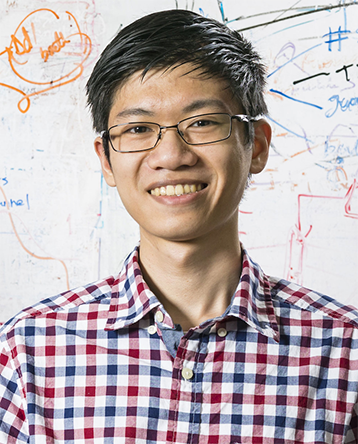
Justin Chan
Assistant Professor, Electrical and Computer Engineering, Software and Societal Systems Department
Justin Chan's research focuses on building intelligent mobile and embedded systems for computational health and large-scale environmental sensing.
His work on smartphone-based ear infections is now FDA-listed and is available to select early access healthcare systems. His work on new-born hearing screening has led to an international effort called TUNE with the goal of bringing universal newborn hearing screening across Kenya as well as collaborations with NGOs such as the Global Foundation for Children with Hearing Loss to deploy this technology in Nepal and Mongolia. His work on contactless cardiac arrest detection has been licensed to a startup which has recently been acquired by Google. He was also a lead contributor for CovidSafe (now WA Notify), a COVID-19 contact tracing and symptom tracking app, which became part of official efforts by the WA Department of Health to manage the pandemic. He has authored publications in interdisciplinary journals like Nature Biomedical Engineering, Science Translational Medicine, Nature Communications as well as Computer Science and Engineering venues like MobiSys, MobiCom, SIGCOMM, SIGGRAPH Asia and UIST.
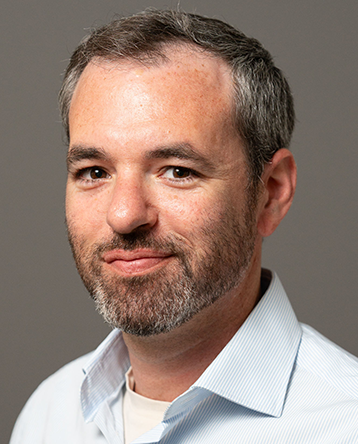
Doron Cohen
Assistant Professor, Engineering and Public Policy, ETIM
As a behavioral scientist, Doron Cohen focuses on the experimental and computational analysis of behavior, behavioral contexts, and learning. Cohen's research focuses on clarifying some of the complexities of everyday decision-making processes and how these are shaped by various incentive systems. By integrating computational cognitive modeling with structural modeling of environments, he aims to predict the long-term impacts of policy changes and support the evaluation and design of effective interventions. His diverse body of work includes the design of safety measures, taxation systems, incentivization programs, and human-computer interactions.
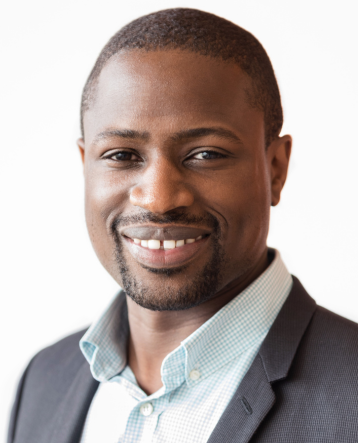
Ismaila Dabo
Professor, CMU-Africa, Materials Science and Engineering
Director of Strategic Graduate Initiatives, Materials Science and Engineering
Ismaila Dabo holds a Ph.D. in materials science and engineering from the Massachusetts Institute of Technology, and B.S. and M.S. degrees from École Polytechnique, France. Before coming to Carnegie Mellon, he worked as a tenured associate professor in the Department of Materials Science and Engineering and the Department of Physics at the Pennsylvania State University with joint appointments in the Penn State Institutes of Energy and the Environment, and the Penn State Materials Research Institute. His awards include the Presidential Early Career Award for Scientists and Engineers (PECASE), Wilson Teaching Excellence Award, Montgomery-Mitchell Teaching Innovation Award, Corning Chair in Materials Science and Engineering, and the National Science Foundation Faculty Early Career Development Program (CAREER) Award. His research focuses on developing and applying predictive computational models and machine-learning methods to maximize the performance of materials for energy conversion and storage. His research stands at the frontier between materials science, condensed matter physics, applied mathematics, and computer science with the ultimate goal of breaking down the complexity of materials problems and guiding the development of energy technologies.

Olexandr Isayev
Carl and Amy Jones Professor in Interdisciplinary Science, Chemistry, Materials Science and Engineering
Olexandr Isayev’s research focuses on theoretical and computational chemistry, machine learning, cheminformatics, drug discovery, computer-aided molecular design, and materials informatics. The Isayev lab works at the interface of theoretical chemistry, pharmaceutical sciences, and computer science. In particular, they are using molecular simulations and artificial intelligence (AI) to solve hard problems in chemistry. They are working toward the acceleration of molecular discovery by the combination of AI, informatics, and high-throughput quantum chemistry. They also focus on both generative and predictive ML models for chemical and biological data.
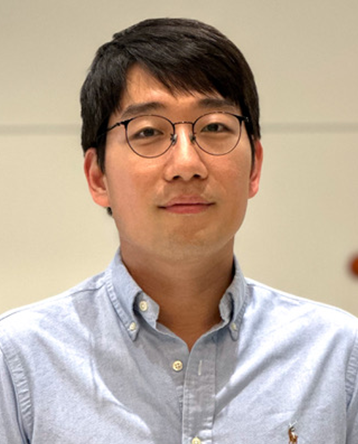
Inseung Kang
Assistant Professor, Mechanical Engineering
Courtesy Appointment, Robotics Institute
Inseung Kang's research program tackles the grand challenge of enhancing human mobility using robotics, wearables, and artificial intelligence. His team has a diverse research portfolio, ranging from designing versatile mechatronic systems to developing generalizable deep learning-based controllers. For example, his group focuses on developing wearable assistive devices such as robotic exoskeletons to help individuals with motor impairments (e.g., stroke or elderly) by integrating a multidisciplinary approach such as mechatronic design, deep learning, control theory, gait biomechanics, motor control, and motor learning. Inseung’s long-term research goal is to develop next-generation wearable robotic systems that have a transformative impact on human mobility by utilizing a comprehensive understanding of human-machine systems. Before joining Carnegie Mellon University, Kang was a postdoctoral associate at the Department of Brain and Cognitive Sciences at MIT. He received his B.S., M.S., and Ph.D. in mechanical engineering from Georgia Tech.
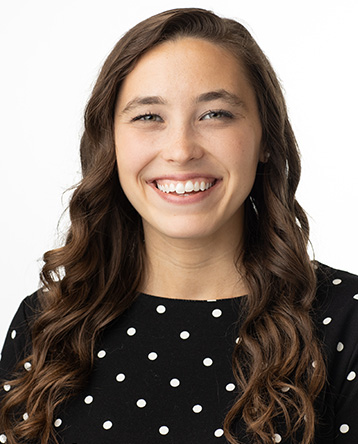
Alexandra Newby
Assistant Teaching Professor, Chemical Engineering
Alexandra Newby received her Ph.D. in chemical engineering, her master's degree in civil and environmental engineering, and her bachelor's degree in chemical engineering and engineering and public policy, all from Carnegie Mellon University. Newby's research experience spans computational and experimental work, covering environmental and biomedical fields.
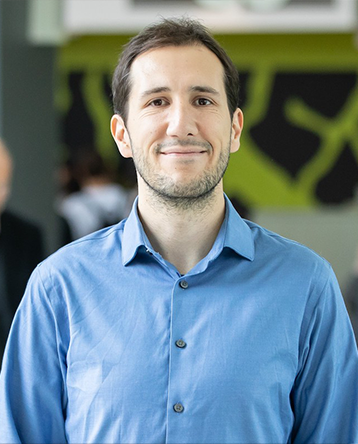
Samuel Pagliarini
Special Professor, Electrical and Computer Engineering
Prior to joining the ECE department in Jan. 2024, Samuel Pagliarini led the Centre for Hardware Security at Tallinn University of Technology (2019-2023). He also held postdoctoral appointments at CMU (2015-2019) and at the University of Bristol (2013-2015).
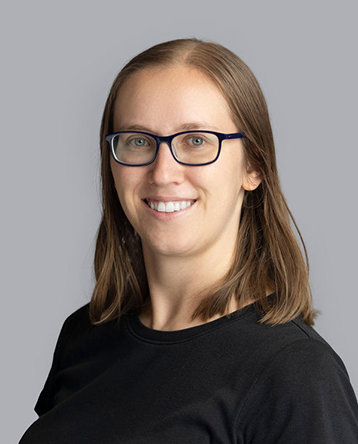
Sarah Scheffler
Assistant Professor, CyLab, Engineering and Public Policy, Software and Societal Systems Department
Sarah Scheffler is a studying applied cryptographer working at the intersection of computer science, policy, and law. Her interdisciplinary work includes policy and technical analysis of end-to-end encrypted content moderation, compelled decryption, privacy policies, and autonomous weapon systems. She also does “pure” applied cryptography, including work on zero-knowledge proofs, multi-party computation, private set intersection, and hash combiners.
Scheffler obtained her Ph.D. from Boston University, advised by Professor Mayank Varia, in 2021. During her time at BU, she was a Ph.D. student in the BUsec group, she organized the BUsec Seminar for security, cryptography, and privacy, as well as the Multi-Party Computation Reading Group, and was an active member of the Cyber Security, Law, and Society Alliance.
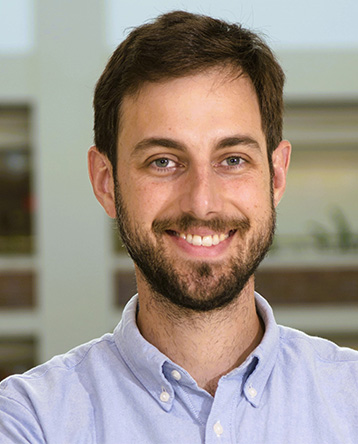
Derin Sevenler
Assistant Professor, Chemical Engineering
Courtesy Appointment, Biomedical Engineering
Derin Sevenler's research addresses problems at the interface of biotechnology and fluid mechanics. His interests include microfluidics, non-Newtonian and complex fluids, biomaterials, gene & drug delivery, nano-optics, and molecular diagnostics.
Sevenler received his Ph.D. in biomedical engineering from Boston University and his BS in mechanical and aerospace engineering from Cornell University. From 2018 to 2022, he was a postdoctoral fellow in the laboratory of Mehmet Toner at Massachusetts General Hospital. Before joining Carnegie Mellon University, he was an instructor in the Center for Engineering in Medicine & Surgery at Massachusetts General Hospital and Harvard Medical School.
Sevenler is a recipient of the NIH Pathway to Independence Award.
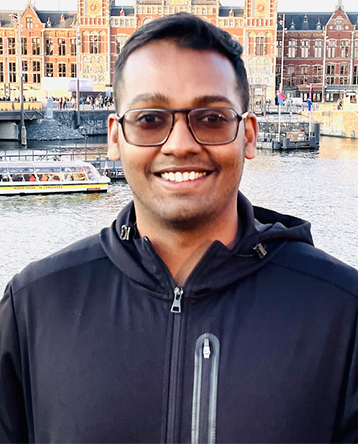
Tathagata Srimani Tathagata
Assistant Professor, Electrical and Computer Engineering
Tathagata Srimani (Member, IEEE) received the S.M. and Ph.D. degrees in Electrical Engineering and Computer Science from the Massachusetts Institute of Technology (MIT), Cambridge, MA, USA, in 2018 and 2022, respectively, and the B.Tech. degree in Electronics and Electrical Communication Engineering from the Indian Institute of Technology (IIT) Kharagpur, India, in 2016. From 2022 to 2023, he was a Postdoctoral Scholar in the Department of Electrical Engineering at Stanford University. Tathagata's research focuses on enhancing the energy efficiency and throughput of computing system hardware through advancements in new technologies, heterogeneous integration, and technology–architecture co-design. His research results include the first silicon fab-compatible process for complementary Carbon Nanotube FETs (CNFETs) enabling the first CNFET RISC-V microprocessor, and the first monolithic 3D system integrating complementary CNFETs with silicon. His work led to the transition of the CNFET and CNFET monolithic 3D technology (Silicon CMOS + Resistive RAM + CNFETs) to industrial fabs: Analog Devices and SkyWater Foundry. His work has been featured in major journals and conferences (Nature, Nature Electronics, ACS Nano, APL, EDL, IEDM, Symp. VLSI Technology & Circuits, DATE), won the Best Paper Award at the 2023 IEEE Symposium on VLSI Technology, and was highlighted in the U.S. President’s 2024 Nanotechnology Budget Report. He was a recipient of the MIT Presidential Fellowship in 2016 and Morris Joseph Levin Award—best Masterworks (S.M. thesis) presentation at MIT in 2018.
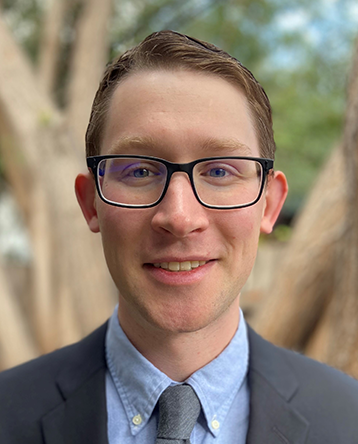
Jason Szafron
Assistant Professor, Biomedical Engineering
Jason Szafron is an Assistant Professor of Biomedical Engineering at Carnegie Mellon University. Professor Szafron received his B.S. in Biomedical Engineering from Texas A&M University, where he completed his undergraduate thesis on endovascular medical device design. He went on to receive his M.S. and Ph.D. degrees in Biomedical Engineering from Yale University, studying the computational optimization of polymeric scaffolds for tissue-engineered vascular grafts. As a postdoctoral research fellow in the Department of Pediatrics at Stanford University, he worked on experimental and computational methods for quantifying mechanobiological changes during the progression of pulmonary arterial hypertension.
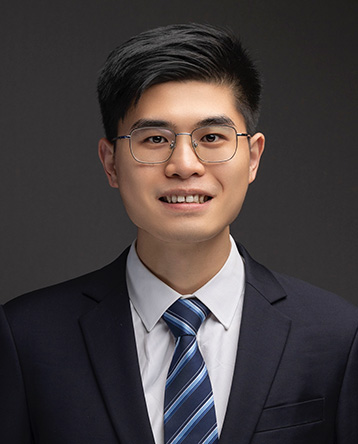
Liwei Wang
Assistant Professor, Mechanical Engineering
Liwei Wang directs the Computational and Physical Intelligence Laboratory (CPhI Lab) in the Department of Mechanical Engineering. His lab aims to establish computational design frameworks for advanced materials systems with enhanced physical intelligence. Liwei’s research focuses on developing machine learning algorithms, mechanics models, and multi-physics optimization methods for 3D/4D printing, smart structures, metamaterials, and multifunctional, programmable materials systems. His research group is exploring applications that can enhance human well-being and extend human capabilities, such as mechanical protective cloaks, minimally invasive surgery, flexible electronics, soft robotics, and mechanical computing.
Before joining Carnegie Mellon University, Liwei was a postdoctoral scholar (2022-2024) and a visiting scholar (2019-2021) in the Department of Mechanical Engineering at Northwestern University. Liwei holds both a B.S. (2017, Honors) and a Ph.D. (2022, Honors) in mechanical engineering from Shanghai Jiao Tong University. He received an institution-level Outstanding Ph.D. Dissertation Award, an ASME Design Automation Conference Best Paper Award, and the ASME Design Automation Dissertation Award.
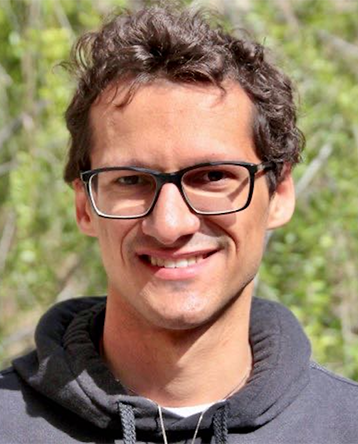
Andrea Zanette
Assistant Professor, Electrical and Computer Engineering
Andrea Zanette's research interests are in the foundations of reinforcement learning, a sub-area of machine learning that deals with decision-making under data-uncertainty.
Before joining CMU, he was a postdoctoral scholar in the Department of Electrical Engineering and Computer Sciences at UC Berkeley working with Martin Wainwright and Peter Bartlett. He completed his Ph.D. (2017-2021) in the Institute for Computational and Mathematical Engineering at Stanford University advised by prof Emma Brunskill and Mykel J. Kochenderfer, and has spent time collaborating with the labs of Facebook Artificial Intelligence Research and Microsoft Research.
His Ph.D. dissertation investigated modern reinforcement learning challenges such as exploration, function approximation, adaptivity, and learning from offline data; it was awarded the Gene Golub Outstanding Dissertation Award from his department. Zanette has a bachelor degree in mechanical engineering.
